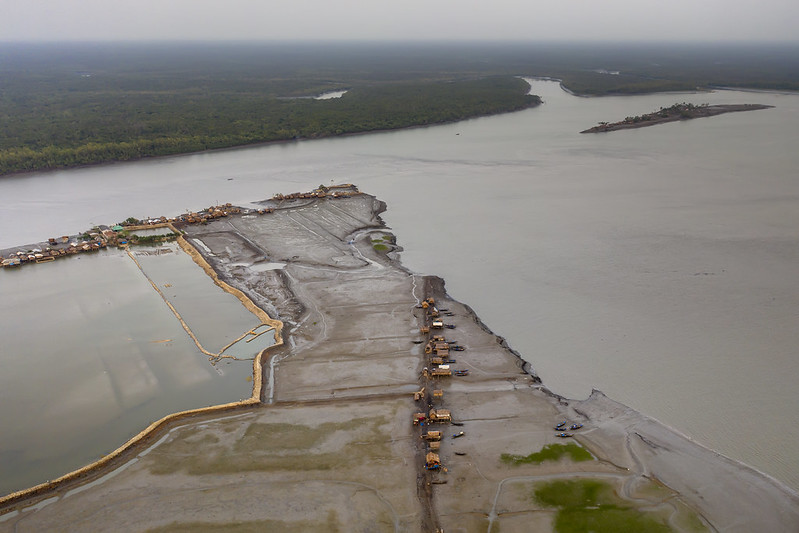Launching a four-year Dutch-funded BRAC-IRC project
Published on: 09/02/2023

Sundarbans, Bangladesh. Photo credit: Flickr - IMF/K M Asad, 26 April 2021
Bangladesh is one of the most vulnerable countries to climate change. The Joint Monitoring Programme's 2020 Progress Report shows that Bangladesh has safely managed drinking water coverage of 59% and safely managed sanitation coverage of 39%. The situation is worse in the coastal areas, drought-prone areas, floodplains and low-lying river basin areas - the climate change hotspots. Extreme climate events reduce the lifespan of the WASH facilities. For instance, according to the Multiple Indicator Cluster survey 2019, national coverage of safely managed water services is 47.9%, whereas it is 35.1% in the coastal zone. Other climate hotspots are no exception. In the Embassy of the Kingdom of Netherlands sponsored project 'Equitable and Sustainable WASH Services in Bangladesh Delta Plan Hotspots' (2022-2026), IRC along with BRAC will work towards developing a sustainable model for WASH services in climate hotspots of Bangladesh.

Photo credit: IRC/Digbijoy Dey
On 25th January 2023, the project was kicked off ceremonially in Dhaka, Bangladesh, in the presence of stakeholders across the WASH sector - government agencies, NGOs/CSOs, academia, private sector and development partners. Innovation and dissemination are major components of the project. Thus, the kick-off event included a learning and sharing session, wherein several private sector and civil society organisations (CSOs) showcased their innovative technologies, and operation and maintenance models suitable for adoption or adaptation in the climate hotspots.
The project will work in 4 delta plan hotspots (coastal areas, drought-prone areas, floodplains and low-lying river basin areas) across 14 districts of Bangladesh. The project will address three key objectives:
With these interventions, the project aims to reach 1 million people with safely managed water and sanitation (basic minimum) services.
IRC will lead the knowledge and sharing process in the project. As the knowledge and innovation partner, IRC will work on the adaptation of water and sanitation service delivery models to climate hotspot areas, a context where existing models often break down or are otherwise not suitable for the harsh climate conditions. It will support BRAC in identification of suitable climate resilient products, from the different domestic (Bangladesh) sectors as well as the Dutch water sector. Further, IRC will build capacities of Local Government Institutes to fulfil their mandate to provide water and sanitation services to the citizens, especially those who cannot afford to pay for them.
Acknowledgements: This news item was reviewed by Shiny Saha and copy-edited by Tettje van Daalen.